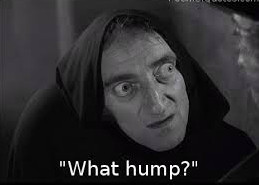I was fortunate enough to learn my trade in a time and place where that trade was a mysterious black art. Getting a job was easy. Getting my own way was easier still.
Imagine my alarm when it transpired everyone had become a writer, and that I was no longer special at all. All those bygone days when everyone from the creative director’s secretary to the CEO’s PA, to the head of traffic were ordered to walk in fear of ‘the egos’ in Creative lest their stream-of-consciousness be jolted… all gone.
It was all due to the fact that Art Director / Writer teams were so cosseted and allowed to get away with such self-indulgence that advertising creatives of the ‘80s and ‘90s were the estate agents and lawyers of their day: precious, highly-strung, unpredictable, offensive, addictive, arrogant and essentially venal.
When the curtain finally fell on those Babylonian days, some ad people couldn’t cope at all, and went to run salmon farms in Natal or vineyards in the Carpathian foothills.
The stronger-willed (or perhaps just those who wouldn’t / couldn’t get other work) set about adapting.
The Adaptive Writer
It’s true, most people with a secondary school English qualification – and a good many without (Charles Saatchi, for one) – can be a copywriter. So it’s no longer sufficient to be just a copywriter in today’s job market.
The current febrile pit of digital and social media, by the way, is only a component of professional communicators’ evolution, and not the fulcrum many agencies, brands and recruiters believe. Writing SEO copy isn’t beyond anybody after half an hour spent with an algorithm-geek; it’s likely the last vestiges of the aforementioned ego that hinders Luddite writers from bothering to learn.
Ten things an accomplished writer should be acquainted with are life, people, business, relationships, failure, resilience, expectation, desire, ego, worth and diversity.
No, those writers who never wanted to be anything other than a writer adapted in a more useful way. And central to that adaptation was writers’ learning where they truthfully fitted into the bigger picture. A good few agencies now seek what they refer to as “conceptual writers”, but after having spoken to them I’m certain they themselves aren’t 100% certain what the term actually means.
And this is the rub… A picture might say a thousand words but words in business must eschew the use of the broad brush to avoid misinterpretation and the deserved fate of the onanist. Discipline in writing must be taken as a given, but the more harmful deficit in modern commercial writers will likely comprise a more eclectic – thought no less important – mix of traits that include empathy, team-spirit, the ability to listen and breadth of experience.
Adaptive writers understand this, because in subsuming their own egos they will have acquired the mature, deep and frankly compassionate understanding that while the bigger kids in the pool have been bombing, snogging under the diving board and pissing in the shallow end, they need writers more than ever who realize this and can work with it… more importantly, who can do so without crowing about how good they are for getting on with it.

Recruitment experts (sic.) might not even be aware they’re failing to focus
Some people get this – recruitment agencies and potential employers alike – but not a great many of them. And of those that do, still fewer are inclined to speculate with a percentage of the payroll. So in the final analysis, writers must be sensitive to the signs of change, but still need to be adaptive in the meantime in the interests of toeing the line of the the status quo.
So, a caveat for would-be writers: bear in mind the saying that anyone can play the fiddle but not everyone can play it well. So before you lay a strand of horse hair to the strings of the fiddle be aware there are still those within earshot who know a good tune well-played when they hear one. And a word of caution too for types who need to acquaint themselves with writers: never hesitate to offer the new fiddler a platform to work the crowd… or to be asked “kindly leave the stage”.
A footnote
Who spotted the glaring omission? The downward slide of standards in spelling, grammar and general use of language has ushered in too many aberrations to go into, or even to contemplate here. The perfectly reasonable entry-level requirements ought to form an unspoken criterion, it’s true – especially given that educated people under the age of 40 see it as an anal-retentive clinging on to outmoded classical education, instead of the only true requisite for effective communication – but it doesn’t. Reeling in the punters, say the Criers, does not need tuning of the fiddle. Apparently.
Is that sufficiently Plain English?